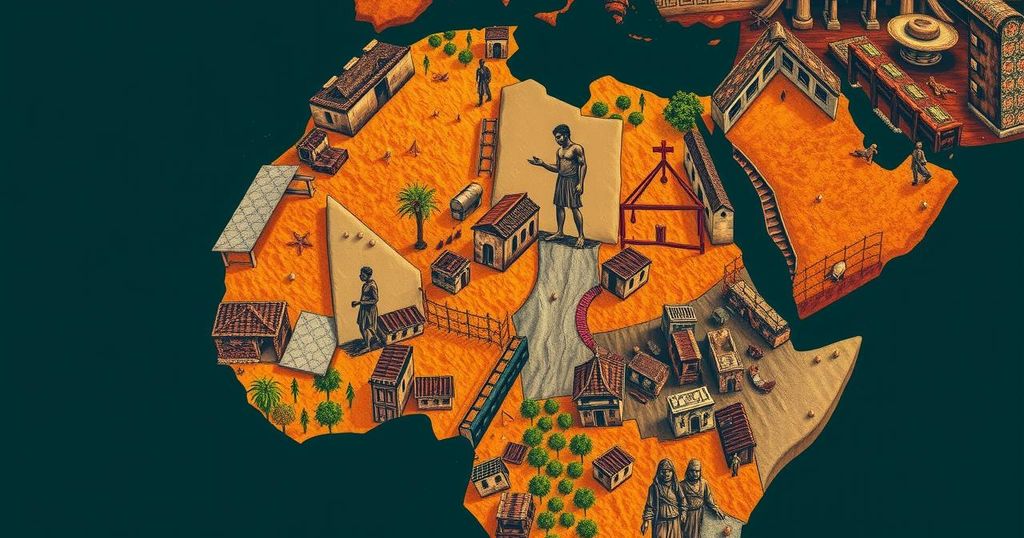Integrating Culture and Heritage in Disaster Management and Climate Adaptation in Southern Africa
This article assesses the integration of culture and heritage into disaster risk management and climate adaptation in Southern Africa, particularly Lesotho. It highlights the threats posed by climate change on cultural assets and emphasizes the need for integrating local cultural knowledge into disaster responses to foster resilience and promote socio-economic development.
The report focuses on the critical integration of cultural and heritage considerations into disaster risk management and climate adaptation strategies in Lesotho and other Southern African nations. It highlights the specific dangers posed by climate change, such as coastal erosion and natural disasters, which threaten the region’s rich cultural assets and biodiversity. Despite the existence of these threats, adequate actions to protect and utilize culture and heritage as vital resources in times of disaster are insufficiently developed. The collaboration between the UNESCO Regional Office for Southern Africa and local partners aims to address these gaps and encourage a more comprehensive approach in integrating culture and heritage into these essential frameworks for community resilience and socio-economic development. The findings, aiming to stimulate further research and relevant policy development, stress the importance of leveraging local knowledge for effective disaster management.
Southern Africa is home to exceptionally diverse cultural and natural heritage. However, climate-induced threats such as coastal inundation, erosion, and cyclones jeopardize these invaluable assets, leading to lost livelihoods and diminished biodiversity. The region’s cultural and heritage sectors are increasingly viewed as potential sources of resilience in mitigating climate change impacts and managing disaster risks, though adequate strategies for their integration into current frameworks remain largely unexamined. The report advocates for more deliberate inclusion of cultural and heritage resources in climate action and disaster management, promoting community involvement and informed local solutions.
In conclusion, the report underscores the urgent need for integrating culture and heritage into disaster risk management and climate change adaptation in Southern Africa. By recognizing the multifaceted relationship between these elements and environmental challenges, it promotes the role of local knowledge and community engagement in creating sustainable and effective strategies. The collaboration between UNESCO and national partners seeks to foster evidence-based interventions that can enhance resilience and safeguard cultural identity amid climatic adversities.
Original Source: reliefweb.int




Post Comment